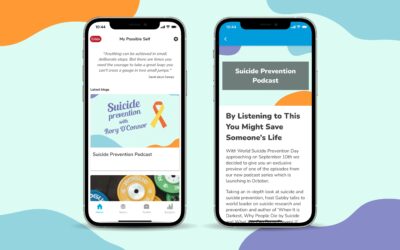After tackling an old fashioned ‘man up’ culture where overworking was ‘quietly expected’ and feeling uncomfortable about reporting mental health issues, a PR professional under anonymity pens their experience from a former workplace.
I recently left a Newcastle agency, solely because of the bad culture and how they treat their staff. There has been a recent exodus of staff from the company as a result of burnout, pressure and all in all uncaring treatment throughout the pandemic.
I would say one of the biggest challenges that came with working there was the complete lack of confidence in being able to report mental health issues – even issues as small as feeling tired, overwhelmed or burnt out – through fear of being penalised through promotion opportunities being taken away, or worse, fear of being pushed out of the company (which staff had witnessed happen to colleagues for challenging workload issues and bad processes, or simply not coping with them).
Any mental health issues that could be considered more significant were certainly not something many of the staff would feel comfortable raising with a large proportion of directors, or even HR. Very little was actually confidential.
What we dealt with was a male-dominated culture that essentially meant you had to ‘man up’ and get on with things if you were struggling, because the work needed to be delivered. End of. A very old fashioned view that overworking was quietly expected, because those who were rewarded or progressed, did so because they gave up their evenings and weekends to complete additional work or hit tight deadlines.
It was something I regrettably participated in for my entire time with the company, because I was keen to progress, and that’s just the way it was. Especially working in the PR, it was almost expected that you should be contactable at all hours, which very much blurs the lines of work and personal time.
Those who raised the issues tended to get a ‘telling off’
Sales roles in the company were continually hired, meaning more business was won, however there was little attention paid to delivery staff. This meant that any of the new business became more and more difficult to deliver and provide with any kind of quality.
Following the Covid-19 pandemic, there were little to no measures put in place to support staff. As soon as restrictions were lifted, all staff were required to be back in the office on set days, regardless of how they felt about their safety.
There was an internal group brought in around March/April of 2022 in which colleagues were told they could raise concerns in a ‘safe forum’ and discuss any changes and improvements they’d like to see implemented. Any discussions of lower than market rate salaries, or overworking, were quickly squashed and those who raised the issues tended to get a ‘telling off’ from their manager later for causing trouble.
Sadly after just over three years I experienced unbelievable burnout, so much so that my only choice was to explore other options. As I had learned there was simply no avenue to raise this internally.
I have since experienced an enormous shift in culture
I have since experienced an enormous shift in culture through moving to a company that prioritises the mental wellbeing of staff. The company genuinely consider it an area that needs to be focused on in order to ensure that staff are feeling their best, and in turn producing their best work.
They have a policy in which no messages can be dropped in channels after 5:30pm, unless it’s an emergency or dealing with crisis comms. However boundaries have been set with clients and this rarely happens. Mental health check ins are regular parts of one-to-ones and are in place so that the business can provide any support needed. This includes counselling or therapy which is part of the private healthcare that staff are automatically enrolled onto.
I’ve made a lot of connections in the industry through my time in digital PR and comms. Through discussions with those in other agencies, I don’t personally feel that there is an issue with the industry itself and its approach to tackling mental health, but I certainly feel there are still a lot of companies in particular that haven’t adapted to a changing world where technology means that we can be ‘always on’.
They consider this an opportunity to get more done, with little thought to the culture it breeds and how much is being expected of their staff.











